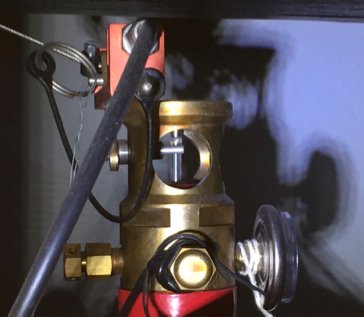MichaelB1969
Guru
- Joined
- Oct 15, 2016
- Messages
- 679
- Location
- USA
- Vessel Name
- Speedy Charlotte
- Vessel Make
- Beneteau Swift Trawler 44
Hi all, I'm getting a bit obsessed with the idea of adding some monitoring of systems (some probably overdue) on the boat lately.
I definitely want to add:
- Smoke/fire detector
- Carbon monoxide detector
- High-water alert
First question is, why bother with a fire detector? Wouldn't a smoke detector be better given the fact that smoke almost always precedes fire? Any reason to have both?
Also, I see there are other monitors for the following. Any thoughts on the criticality of monitoring these things?
- Propane
- Exhaust Temp
- Cooling Water Flow
- Low Oil Pressure
I also wonder whether or not the Volvo EVC warns about any of these things out of the box (with the exception of the propane of course).
Lastly, if I get a panel with an audible alert, do you think the panel should be replicated on the flybridge, or is one at the lower helm enough? My assumption is that I'd hear it from the bridge.
Any thoughts or guidance is appreciated. I have been perusing AQUALARM, Warning Systems For Land And Sea and they seem to have a wide array of sensors and panels for this stuff at a reasonable price.
Thanks,
Mike
I definitely want to add:
- Smoke/fire detector
- Carbon monoxide detector
- High-water alert
First question is, why bother with a fire detector? Wouldn't a smoke detector be better given the fact that smoke almost always precedes fire? Any reason to have both?
Also, I see there are other monitors for the following. Any thoughts on the criticality of monitoring these things?
- Propane
- Exhaust Temp
- Cooling Water Flow
- Low Oil Pressure
I also wonder whether or not the Volvo EVC warns about any of these things out of the box (with the exception of the propane of course).
Lastly, if I get a panel with an audible alert, do you think the panel should be replicated on the flybridge, or is one at the lower helm enough? My assumption is that I'd hear it from the bridge.
Any thoughts or guidance is appreciated. I have been perusing AQUALARM, Warning Systems For Land And Sea and they seem to have a wide array of sensors and panels for this stuff at a reasonable price.
Thanks,
Mike
Last edited:

